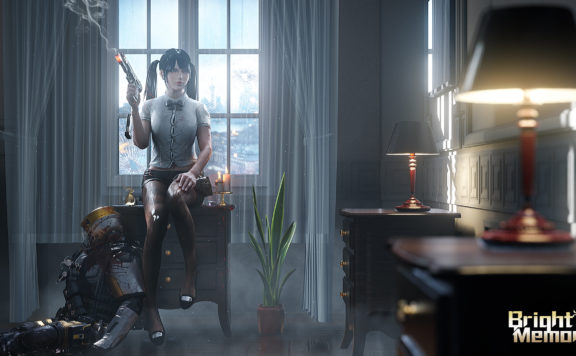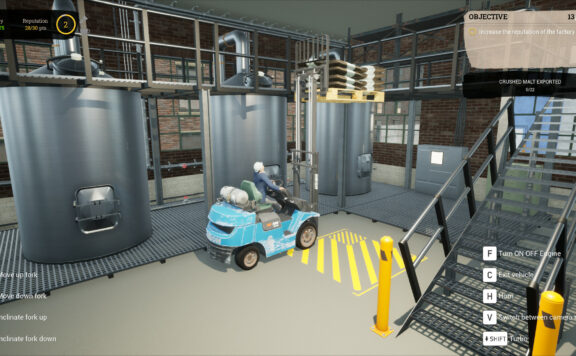If life is like a box of chocolates, then Early Access is a box of chocolates where almost all the pieces are the nasty ones. Many gamers have given up on Early Access altogether, but for those who are willing to wade through the many, many rat droppings, every once in a while they will come across a gem. City of Brass, from developer Uppercut Games, is one of those gems.
The story of this first-person roguelike is pretty straightforward: The people of an ancient Arabian Nights-esque city gathered wealth from around the world. They used dark magic to bind 3 genies at the city’s center, ensuring their immortality. With the magic twisting their minds, they built traps throughout the city to protect their treasures from outsiders, and ultimately their paranoia caused them to turn on each other. Since their demise, many have tried to reach the lost treasure, only to die and return as an undead minion, bolstering the ever growing army protecting the city. Now it’s your turn to test your skill at avoiding the perils of the city to obtain the treasure!

The premise of the game may be simple, but like any good roguelike, completing all the levels may be near impossible. There are chests to find that hold more powerful weapons and armor to aid you on your way, as well as benevolent Genies scattered through the levels whom you can trade your treasure for stronger gear and power-ups. Will you spend your hard-earned gold to ease your journey, or will you hoard every coin you find to earn a higher score?
For those who initially find the game too easy, fear not, as the team at Uppercut Games has a wicked streak running through their core. Instead of having the option of making the game easier if you find the levels too difficult, you will unlock Divine Burdens to further impede your progress. For example, if you die enough times to traps you will “earn” the option to double the number of traps on a level. Or, perhaps you find yourself using Genies to gear up too often? Then turn on the Unhelpful Burden to halve the number of available Genies. Masochists will find this system truly enjoyable I suppose.
Armed with a scimitar and a whip (yes, a whip!) your objective is to traverse the streets of the city collecting treasure, avoiding traps, and destroying the plethora of undead minions blocking your way. Each level is fairly linear, but there are numerous side paths to explore for more loot. Don’t spend too much time hunting for treasure though, as each level is timed. While you don’t die immediately when time runs out, un-killable whirling dervishes will tirelessly track you down, moving ever faster the longer you take.

Controls are typical of any first-person game; you can run, jump, crouch, and slide your way around the level using either mouse and keyboard or controller. Your main attack is with your scimitar (or any other primary weapon you come across), but you are able to use the environment as a weapon as well. You can pick up a vase or lantern to throw at the undead, with the lanterns exploding upon impact. You must always be aware of the traps around you, but I found it very satisfying to learn that your undead enemies could be lured into and killed by the traps.
The biggest draw to the game for me was the use of a whip as your secondary weapon. Very few games have made a whip available to the protagonist, with even less incorporating it in a way that makes it anything more than an encumbrance. In City of Brass, your whip has several useful functions. Its most basic function is breaking objects such as boxes or vases. You will also use it to set off traps so you can then move through them harmlessly. Conversely, you will use it to pull enemies into nearby traps and their wickedly enjoyable destruction. As a secondary weapon, it can be used to disarm, stun, or trip your foe, making it much easier to dispatch them.

As stated originally, this game appears to be a gem. It is just frustrating enough to keep you coming back for more, and the longer you play, the better you will become. As you progress you will meet new, more powerful foes, so the difficulty curve always stays one step ahead of your skill, just like a roguelike game should be. To find out more you can check the game out on Steam, or go straight to its webpage. And if you’ve tried the game out, leave a comment below letting me know how far you got before you broke your controller in half.







